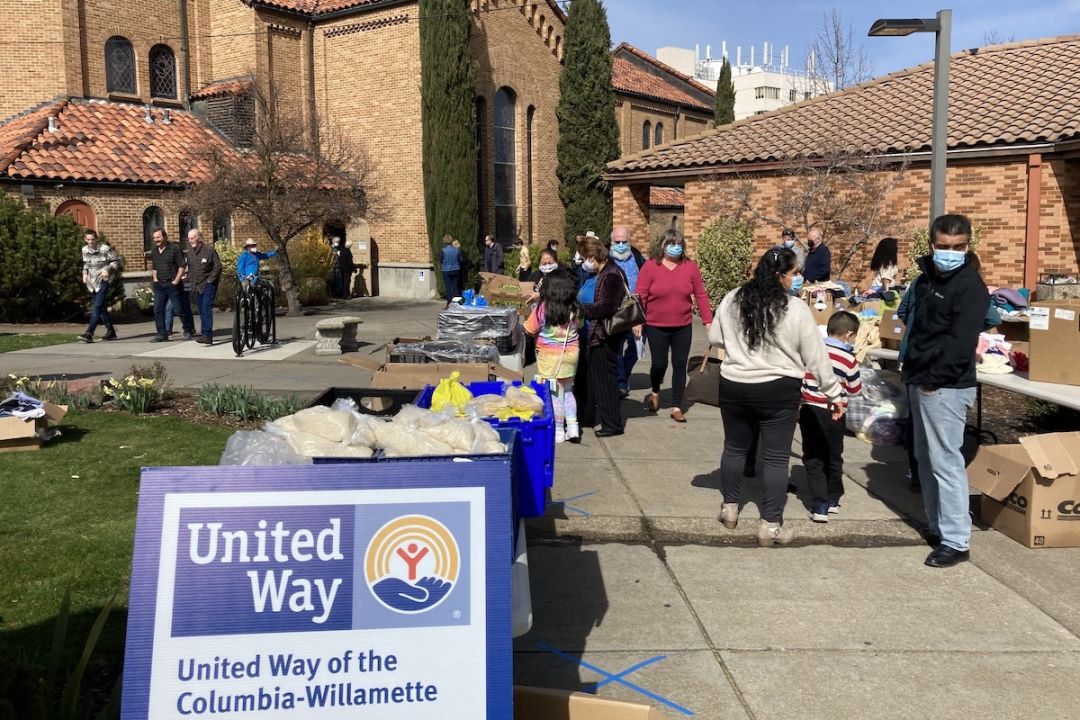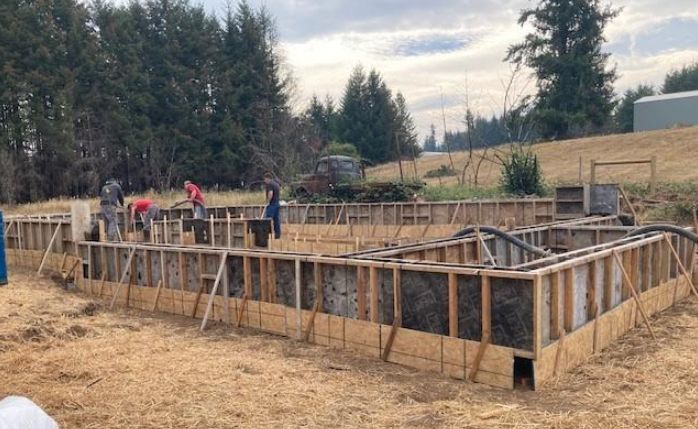Rebuild, repair and prepare

To date, more than 96,000 children and families have been assisted through the funding efforts of United Way of the Columbia-Willamette. To create impact in local communities in Clackamas, Washington, Multnomah and Clark counties, consider a year-end gift to United Way of the Columbia-Willamette.
It is impossible to overstate the detrimental impact we’ve seen from the increasingly intense wildfire seasons we’ve been experiencing as Oregonians – unprecedented acres of natural areas ignited, swaths of homes destroyed, and communities struggling to contend with a new, disastrous normal. The pain of losing a home, a sacred place, or a gathering area for your community is unimaginable to many. Despite this, what United Way of the Columbia-Willamette has seen as we collectively work to respond to those affected has been an outpouring of care, love, and respect from the more than 30 community-based organizations and nonprofit partners we’ve worked with so far. It’s through their work that we as a community draw strength and hope for a better tomorrow.
Responding to a crisis
United Way of the Columbia-Willamette leads with racial equity because structural racism and other forms of oppression contribute to persistent disparities in our region. To that end, United Way of the Columbia-Willamette prioritized grants during the wildfires to non-profits serving low-income, houseless and rural communities as they became de-facto disaster rapid response teams, often sidelining their typical work to address the needs of those in crisis. These critical funds, raised through government grants and individual and corporate donors, helped these partners take on the vital work of rebuilding resiliency. And one such partner – Clackamas County Long Term Recovery Group – provides free assistance to those impacted by the wildfires in our own backyard.
Navigating the impacts of the wildfires
The Clackamas County fires last year damaged more than 182 structures causing millions of dollars of damage and displacing residents. While the Federal Emergency Management Agency (FEMA) provided a maximum contribution of $35,000 for families to rebuild, these survivors quickly realized they needed additional support. The Clackamas County Long Term Recovery Group quickly acted to not only bridge financial and resource gaps, but to also help fire victims navigate insurance claims, connect them to community services, clean up debris and rebuild their homes, and provide emotional and mental health resources.

In total, the Clackamas County Long Term Recovery Group assisted over 30 families and raised more than $1 million in aid to the community.
Rebuilding with resilience
The first rebuilding effort centered around a family who lost their manufactured home situated on a beautiful piece of land just outside of Estacada. The complete loss of their home was devastating – yet they picked up the pieces to move on. While living in a temporary RV on their land, the family tapped into FEMA and other resources but quickly realized these resources were insufficient. The Clackamas County Long Term Recovery Group (CCLTRG) quickly activated their network of volunteers and donors to build a two-bedroom, fire-hardened home.
“Many areas of Clackamas County were devastated by the 2020 wildfires and the road to rebuilding is long and can be complex,” said Pat Olsen, chair of the Clackamas County Long Term Recovery Group. “We would not be able to make the impacts, large and small, without donations of time, materials and resources. The Clackamas County Long Term Recovery Group looks forward to continuing our work in the new year and beyond and cannot thank our community and partners enough for their support as we work together in meeting the needs of our wildfire survivors.”
Framing crisis response in equity
As the frequency and severity of natural disasters increase, culturally specific and culturally responsive community-based organizations and non-profits will play a critical role in supporting affected communities, particularly the Latinx and American Indian communities who were disproportionately impacted by the 2020-2021 natural disasters. In partnership with the Oregon Health Authority, the Confluence Environmental Center, and Trauma Informed Oregon, United Way of the Columbia-Willamette is piloting a Disaster Resilience Learning Collaborative program. The purpose of the project is to advance equitable disaster resilience through healing centered, culturally grounded collaborations and actions.
“Beyond strengthening infrastructure and protecting natural resources, we must reimagine how disaster response strategies can better serve BIPOC communities” said Cindy Adams, United Way of the Columbia-Willamette CEO. “The Disaster Resilience Learning Collaborative will convene leaders of color throughout the state to center cultural ways of healing to help build true resiliency in the face of disaster.”
We cannot afford to be caught off guard by disasters that by all metrics will only increase in intensity. Work with us today and help build up resilience in Oregon’s families and communities. Connect with your community, have a plan, and continue to prioritize the voices of victims and volunteers working to rebuild, repair, and respond. Consider a gift to United Way of the Columbia-Willamette to continue this important disaster relief work of our partners centered in racial equity.
Click here for a full report on the United Way of the Columbia-Willamette’s Wildfire Response.
